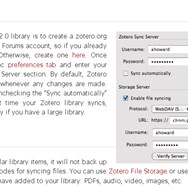


In particular, I do most of my reading electronically (and on a mobile device), and I often receive/find one-off recommendations from the lab or Twitter, which is a pain to manage without disrupting my day. One last thing before we get to the good stuff: my preferences are specific to my literature reading workflow, which might be different from yours. You can find the detailed notes for each by clicking on “Click to expand” in each section, which I highly recommend if you’re considering a particular app based on the feature highlights. These are aimed at helping you make a decision as quickly as possible, based on your needs. This post is rather comprehensive, so I’ve collapsed the detailed comments for each app, leaving just the intro and summary. This took me a good month or so, but hey, now that I did the hard work, you don’t have to. So I decided to bite the bullet and try all the ones I could get my hands on to see which one I liked more. To my extreme surprise and exasperation, I found none. Naturally, I flipped through the internet to see if there exists a comparison of the more recent tools available to help me make a decision. Long story short, I’ve been using Papers 3 for about 2 years now, and I’ve been getting increasingly annoyed by it over the last few months.

Today, I’m writing about one of the most commonly used tools across academia - the reference management software. How does the saying go? “You can’t paint a Picasso with a paint roller?” I’m sure that’s not how it goes, but the point is, having good tools is the foundation of doing good work.


 0 kommentar(er)
0 kommentar(er)
